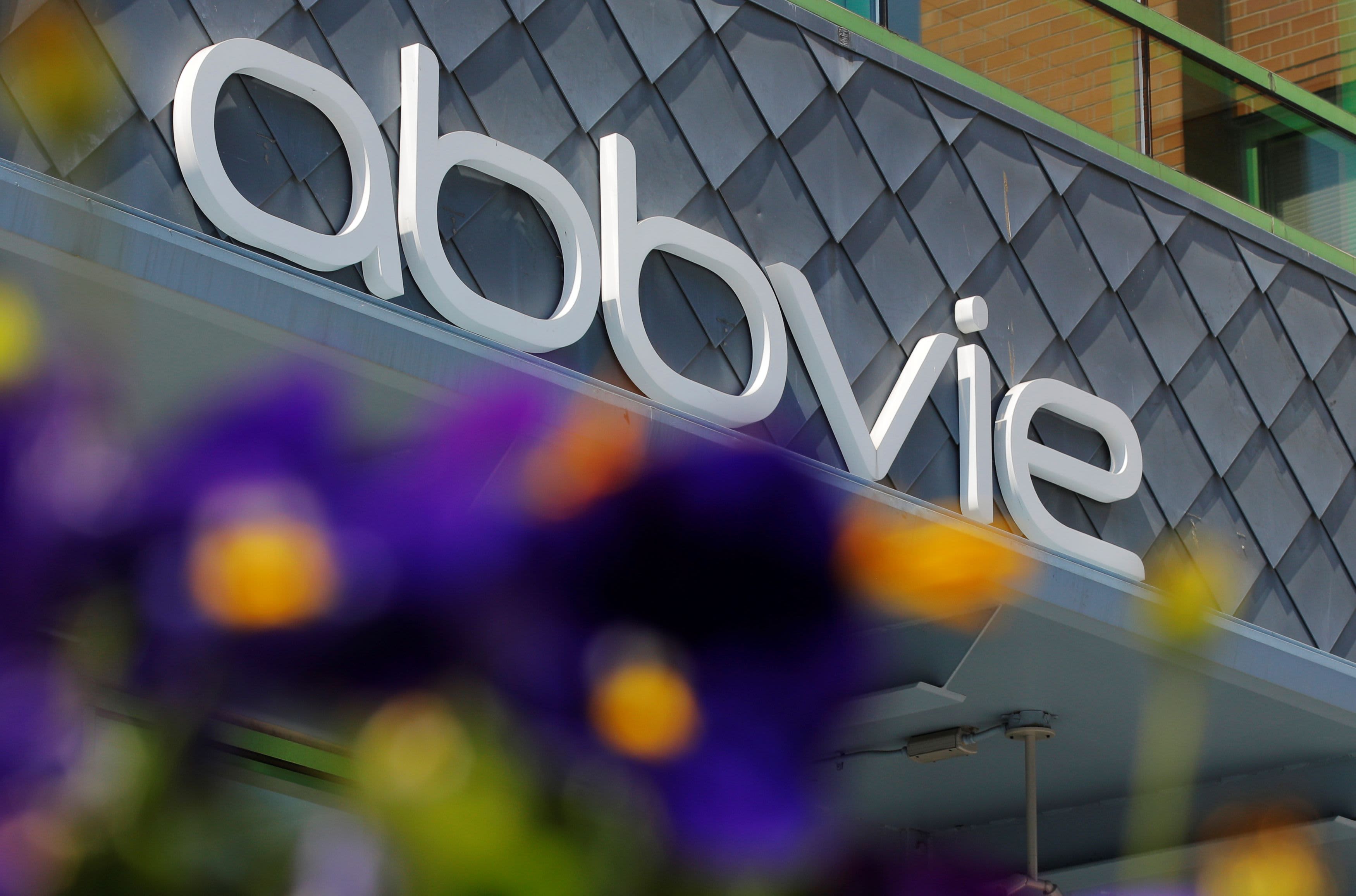
A sign stands outside a Abbvie facility in Cambridge, Massachusetts, May 20, 2021.
Brian Snyder | Reuters
(This article was sent first to members of the CNBC Investing Club with Jim Cramer. To get the real-time updates in your inbox, subscribe here.)
After you receive this email, we will be selling 100 shares of AbbVie (ABBV) at roughly $135.78. Following the trade, the Charitable Trust will own 1,000 shares of AbbVie. This trim will decrease ABBV’s weighting in the portfolio from about 3.53% to about 3.22%.
We are making another small trim Wednesday in a stock that has been on the 52-week high list day after day. This trade is part of our portfolio management plan to peel off shares from several stocks that have pushed to new highs in the market comeback so that we can replenish a cash position we actively deployed at lower prices.
AbbVie has been a very strong performer over the past month, gaining more than 16% since the start of December for several different reasons. Let’s break them down.
On a company level, one of the bearish debates around AbbVie this year centered on whether the FDA would crackdown on the JAK inhibitor class due to safety concerns, even though Rinvoq has shown to be safe and effective in all of its studies. Any strict labeling by the FDA would impact the Rinvoq franchise, which is one AbbVie’s most important growth medicines. Rinvoq is so important for AbbVie because it is expected to replace a large portion of the sales that the company will miss after Humira loses its patent protection in the United States in 2023.
Well, the bear thesis on AbbVie took a big step back earlier this month after the FDA approved Rinvoq for the treatment of adults with active psoriatic arthritis. The news signaled the FDA may be easing on Rinvoq and the JAK class at large, which if true, means AbbVie’s 2023 earnings per share floor is higher than what the bears anticipate.
Loading chart…
From a stock perspective, we think investors have gobbled up AbbVie because its large, safe dividend and low price-to-earnings valuation are what investors like to buy on concerns of a Federal Reserve or omicron-driven economic slowdown.
And on a sector basis, health care has been in favor lately because they are defensive and can grow earnings even in an economic slowdown. Also, drug stocks were perceived as a net winner of the blocking of the Build Back Better plan because one of its provisions would have allowed the government to negotiate directly with pharmaceutical companies on the price of certain drugs.
So as you can see, there are a lot of reasons why AbbVie has been on a tear lately. And despite today’s trim, we think the stock goes higher in 2022, explaining why this position remains one of the relatively larger ones for the Charitable Trust.
We believe the stock’s low price-to-earnings multiple has overly discounted the Humira loss of exclusivity. Management has done a great job executing the Rinvoq and Skyrizi launches, supporting the Medical Aesthetics franchise, paying down debt, and we see these themes continuing next year. And by the way, the 4.15% dividend is an attractive payment as we wait for the Humira dynamics to play out.
But after the recent run, our oldest lot from October 2019 has reached a fantastic gain of about 82%. We want to lock that in today.
The CNBC Investing Club is now the official home to my Charitable Trust. It’s the place where you can see every move we make for the portfolio and get my market insight before anyone else. The Charitable Trust and my writings are no longer affiliated with Action Alerts Plus in any way.
As a subscriber to the CNBC Investing Club with Jim Cramer, you will receive a trade alert before Jim makes a trade. Jim waits 45 minutes after sending a trade alert before buying or selling a stock in his charitable trust’s portfolio. If Jim has talked about a stock on CNBC TV, he waits 72 hours after issuing the trade alert before executing the trade. See here for the investing disclaimer.
(Jim Cramer’s Charitable Trust is long ABBV .)




